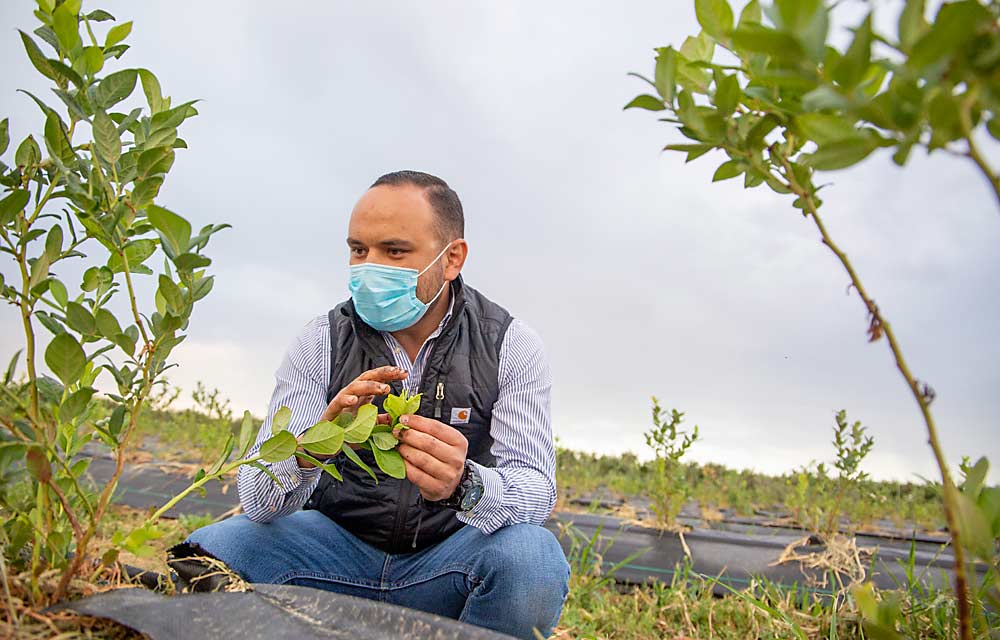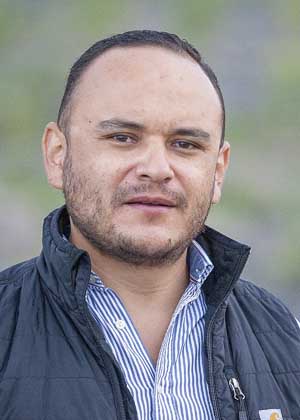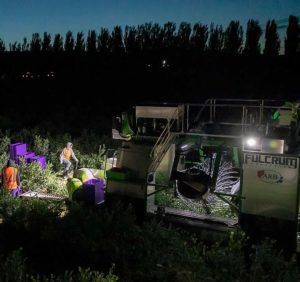
When Roy Farms began expanding its blueberry operations, it struggled to find job candidates with the right mixture of management, horticulture and research background for its upper-level farm director positions.
“We had to broaden our search net and had to broaden it outside the U.S.,” said Michael Roy, company president.
The company looked to Mexico to fill two key spots. International recruiting is becoming more common in the fruit industry as companies vertically integrate and horticultural systems become more complex.
“Things are getting more sophisticated,” said Eamonn Roach, a Pasco, Washington, immigration attorney familiar with the fruit industry’s hiring needs.
Roach helps many companies find highly trained workers abroad, some with advanced degrees. He represents a cut greens company with agricultural engineers on H-1B visas from Mexico and Central America. Another company, one that does testing for chemical vendors in Wenatchee orchards, employs a Japanese horticulturist on an H-1B visa.
For Roy Farms, Eduardo Tirado and Mario Aello have both assumed director-level positions for two facets of the company’s blueberry production operations and are in the United States on TN visas, a nonimmigrant program for professionals from Mexico or Canada.
Tirado is the farming operations director of Othello Blueberry, a massive new plantation for which Roy Farms is the managing partner in a California-based investment group. Othello Blueberry aims to produce organic, Salmon-Safe and Global GAP certified berries for the fresh market.

Tirado had management experience, as well as a background working with organic blueberry substrates, or containers, plus a complex horticultural system with myriad detailed and precise management decisions required.
A graduate with a bachelor’s degree in agronomy from the University of Colima, Tirado has 11 years of commercial blueberry experience, mostly with Driscoll’s. He has planted new farms in Australia, Uruguay, Peru, California and his home country of Mexico. Driscoll’s once had 175 acres of blueberries in Mexico, about 10 years ago. Tirado took that to 3,400, he said.
He now lives in Richland, Washington, with his wife and two children.
In August last year, Tirado inspected a lonely field during one of his postharvest reviews, looking for signs of chlorosis, pest damage and other problems. He saw some signs of fungal diseases, but the bushes had new growth that would produce fruit the next year. He pulled a few weeds protruding from gaps in the plastic mulch. Weeds are one of the top enemies for a young organic berry farm.
As the farm grows, he will oversee automated sulfur burners intended to keep soil pH between 5.5 and 5.8, and he will choose locations for coming wind machines. He also is steering the operation toward the long-term goal of mechanical harvest for fresh pack and has started trials, but until then he must manage hundreds of seasonal hand laborers.
Certainly, it’s a big job, and the pandemic exacerbated his challenges, just as it did for everyone else. He returned to Mexico near the end of February 2020 as part of his visa requirement and was stuck there for five months, virtually overseeing the farm’s first commercial harvest based on photos and sensor reports.
“A lot of Zoom, a lot of FaceTime, a lot of phone calls,” he said.
Aello is the agronomy and applied research manager for blueberries and apples at Roy Farms’ Moxee location, where the blueberry bushes are mature. His background in applied research attracted Roy when he was looking to fill the position.

The son of an agricultural engineer, Aello focused on research and development in his own agricultural biotechnolgy engineering studies at ITESM, a prestigious technical college in Monterrey, Mexico. He spent four years at Driscoll’s as an agronomist, working with small family farmers. Many of them farmed organically in an area with 80 percent humidity, a haven for pests and diseases.
Aello and Tirado consider it their jobs to professionalize the Northwest’s blueberry industry. Both aim to create a staircase of opportunity for existing workers who seek management and higher-level horticultural training. Aello is in the process of building a research and development department for the farm while he’s implementing digital productivity tracking systems and teaching technology to veteran workers — all to “change the culture from a traditional agriculture to a professional agriculture and technical agriculture,” said the soft-spoken Aello.
Hiring foreign professionals can be expensive, Roy said, but the complexity of vertically integrated businesses requires special skills.
“We can’t just rely on staff that grew up in the business,” Roy said.
—by Ross Courtney
Hiring foreign managers
The two main routes for a tree fruit company to hire foreign professionals at a management level or as specialist employees are TN visas and H-1B visas. Here’s a look at both.
H-1B visa
—Nonimmigrant, but can be dual intent. H-1B visas can lead to immigration.
—Open to any country.
—Intended for professionals with a degree or high level of training and certification.
—Capped at 85,000 individuals nationally, selected through an annual lottery. Odds of receiving a visa are about one in four.
—Relatively expensive process.
—Limited to three years but can be extended for three more. Head hunting recruitment is common.
—Familes of H-1B workers may seek admission as dependents.
TN visa
—Purely nonimmigrant visa created under NAFTA and continued under the new U.S.-Mexico-Canada Agreement.
—Canadians may present at the border, enter without a visa and apply for TN status from within the U.S. Mexicans need a visa from a U.S. consulate inside Mexico before entry.
—Available to fill professional positions in the U.S.
—Quite common, with no admission cap.
—Relatively inexpensive process.
—Valid for three years, can be renewed indefinitely.
—TN visa holders can apply to switch from TN to H-1B to take advantage of dual intent.
—R. Courtney







Leave A Comment